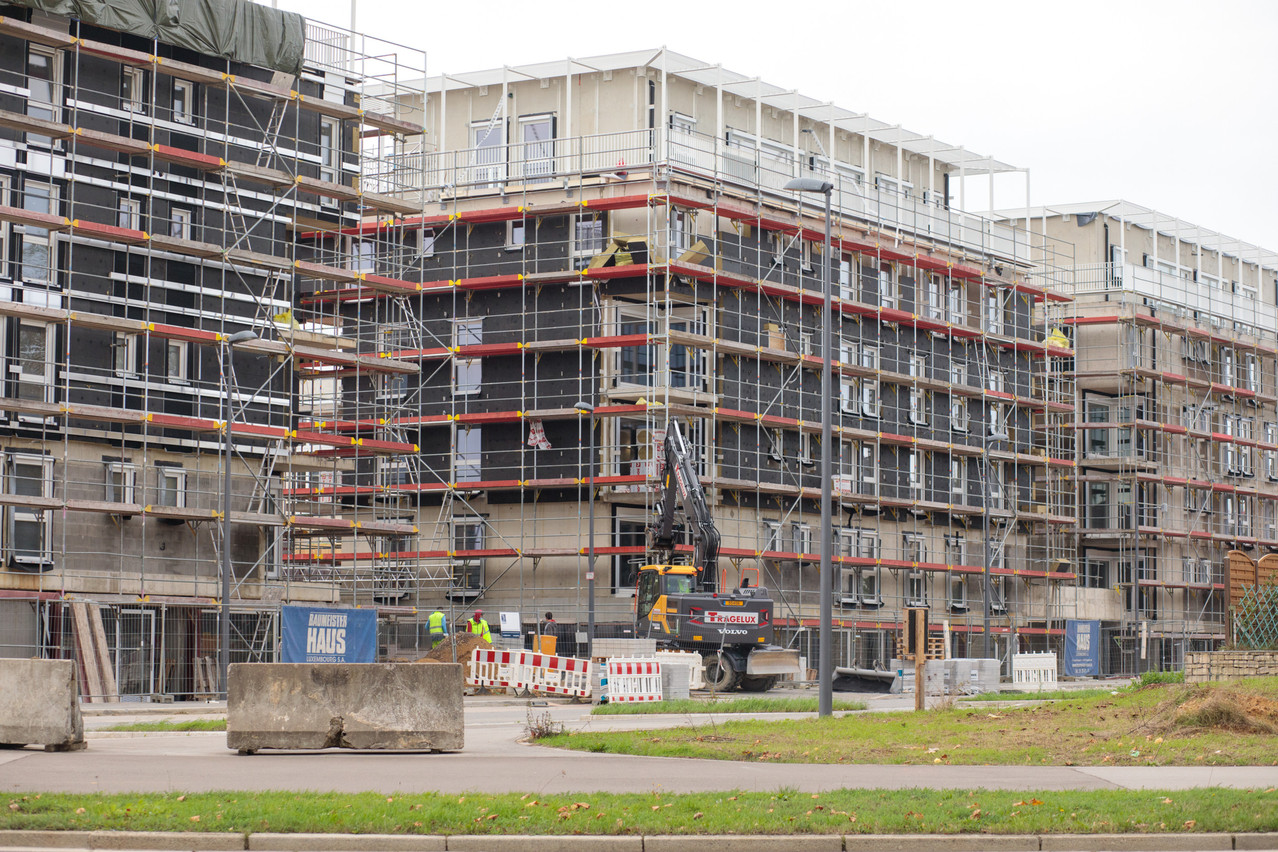The results of the survey--commissioned by RTL and the Luxemburger Wort--reflect the current issues the grand duchy is facing. Participants were equally divided between genders, ages, political preferences, and geographic locations. Only people with a right to vote in Luxembourg are interviewed.
Sitting at the top of the chart, affordable accommodation was the biggest problem for 82% of participants. The housing crisis that has been plaguing the country sees a continuous increase in prices,
Worries about children’s future and the increase of car traffic shared the second and third place (61%), followed closely by the consequences of climate change (57%).
Climate change, affordable housing and the future of children were also the three subjects participants wanted to see most addressed by politicians.
Most people emotionally drained by pandemic
Among the 1,016 people who answered the survey, 91% were vaccinated, and 9% said they weren’t. However, a lower number of 87% felt adequately protected by vaccination, while 7% didn’t. The category of ages 35-44 felt least safe, with 77% answering they felt protected while 15% didn’t.
When asked to rate the government’s management of the health crisis, the consensus was positive, though approval went down from 82% to 63% during the September-November 2020 period and 85% to 75% during the August-October 2021 period. Among voters, followers of prime minister Xavier Bettel’s DP party were more likely to think of the government’s work as ‘very good’ (47%), whereas other political colours generally qualified their management as ‘rather good’.
Unvaccinated people also tended to express extreme (36%) to mild (42%) discontent at the government’s handlings during the last few months of the pandemic, whereas 81% of vaccinated people felt positively about it.
Most participants (57%) across all ages and genders also felt emotionally burdened by the pandemic and ensuing restrictions. Women, as well as those between 18 and 44 years old felt most emotionally impacted by distancing rules, limits on external contacts and the wearing of masks.
Majority for mandatory vaccination
When asked how they felt about CovidCheck in restaurants and bars, 76% approved of the rule. 67% of people also said that there should be more relaxed measures for those who have been vaccinated, tested negative or recovered from the virus. This comes at a time where the recently implemented and controversial
Younger generations found that the government had done enough to clearly advertise the benefits and risks of inoculations. Only 42% of 18-24 year olds, and 50% of 25-34 thought the governmental campaigns efficient and informative. This compared to 11% of unvaccinated participants feeling the government had done enough to outline the positive and negative consequences of a vaccination.
Along with the overall positive outlook on vaccination, a majority of respondents (54%) thought it should be mandatory.
Participants were also worried about the economic consequences of the pandemic in Luxembourg: 74% felt worried about the growing gap between the rich and poor, while 66% worried about the general economic waves caused by the crisis.
Confident in Luxembourg’s future
When asked about the evolution of safety and job security in Luxembourg, the majority of participants didn’t feel too worried about the future of the grand duchy. And though most felt the country was equally fair towards all, salary brackets had an impact on that sentiment: those making up to €4,000 mainly thought the nation was unfair (51%), whereas the €8,000 and more bracket considered the grand duchy fair (56%).
Lastly, only a third of participants worried about the loss of the Luxembourgish language. Indeed, the language remained popular among students .
